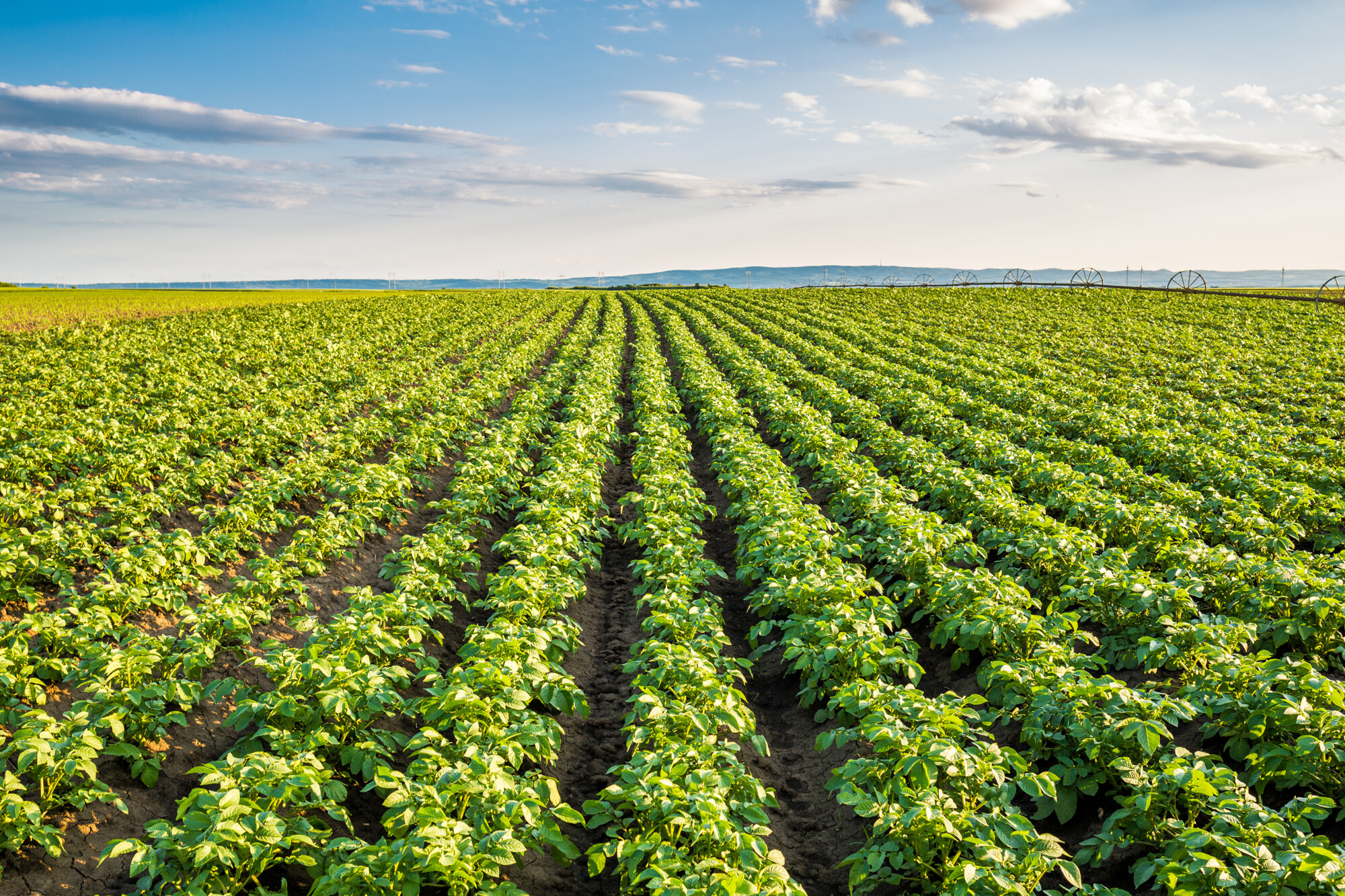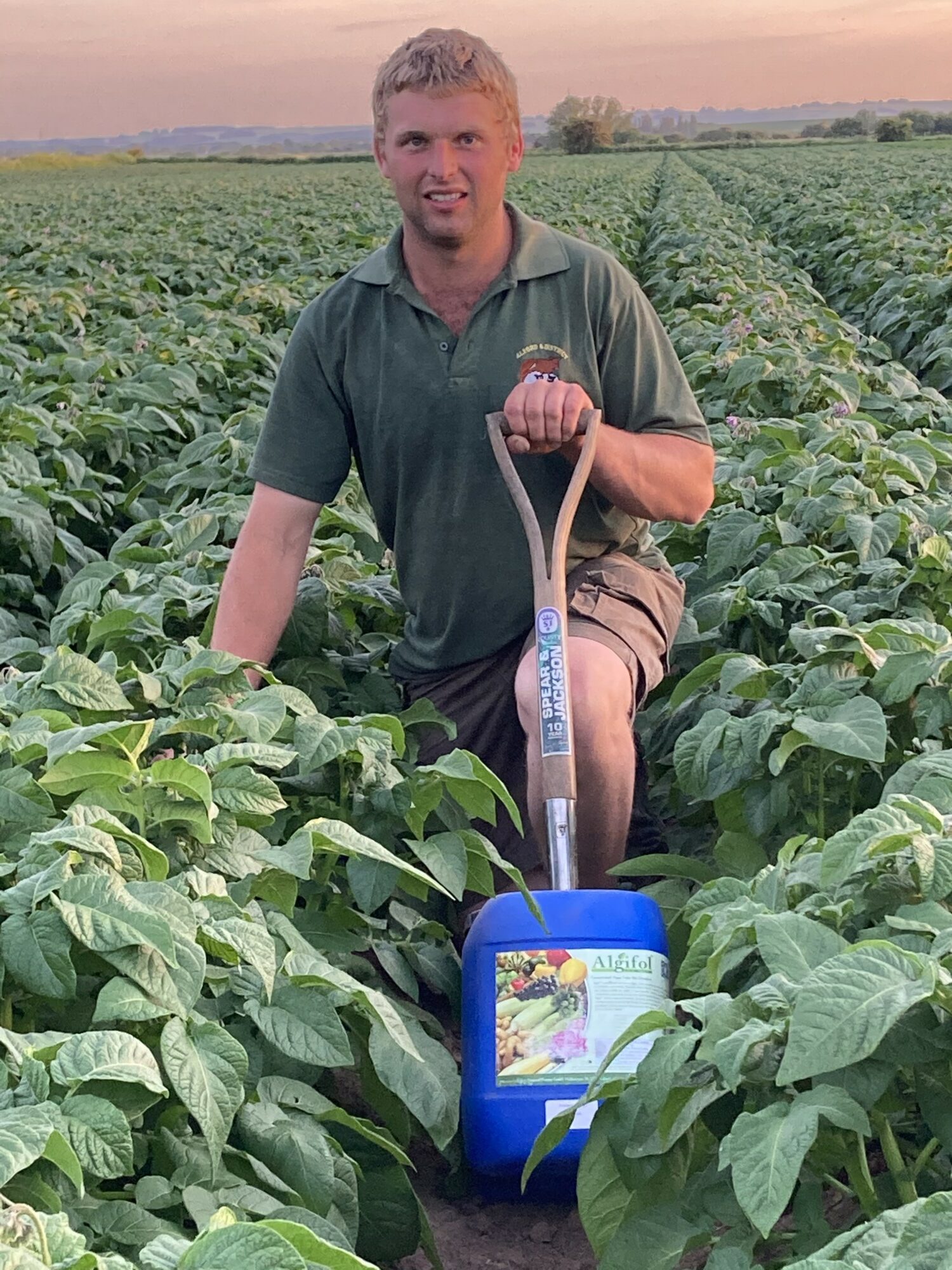Seaweed-biostimulant helping potato growers stay cool in the summer heat
30th June 2021
Growers without access to irrigation systems are being encouraged to follow the lead of one Lincolnshire farmer who has embraced seaweed to help his crop fend off the effects of heat stress.
Since 2018, the Louth Potato Company has used a seaweed-based biostimulant to counter the impact of extreme weather conditions.
Ryan Wrisdale has been applying Algifol regularly to his winter wheat, pumpkins, and potatoes. He says the results have been amazing.
“In 2018, we had a very wet winter and spring, followed by drought conditions over the summer. As we don’t have an irrigation system, we could not water our 20-acre crop of early and second early potatoes. After a few weeks, the plants were suffering from stress due to no water and were not growing.
“We were introduced to Algifol, which we applied with every blight spray on a seven-day interval. This meant that the plant was fed through the leaves with Algifol applied little and often. This kept the plant alive, and the potatoes were able to gain more weight and size, resulting in a bonus of an increased yield after we thought it was too late.
“We also gained a good-sized potato which was amazing as at one point we thought we were going to have a disastrous crop. The potato crop yield averaged between seven and ten tonnes to the acre that year.
“It wasn’t just me that saw the benefits of using Algifol that year. One of our growers had over seven acres of Accord, which had developed a virus and distress.
“I told them about Algifol, and they started using it too. After four applications spread over four weeks, their crop recovered to a high standard and produced an exceptional yield at the end.
“We know this was down to the Algifol because the grower had a small strip in the field which never received Algifol. That strip didn’t produce a high yield, and the potatoes didn’t grow very big because the tops died off.”
Today, the Louth Potato Company is so happy with the results Algifol produces; the company uses it on all of its crops.
“Algifol has an incredibly positive impact on our winter wheat, pumpkins and potatoes. In the last three years, we have faced many different challenges with weather extremities, such as torrential rain leading into droughts. The growing conditions have been both hard and worrying, but by applying Algifol to all these crops, especially throughout the droughts, we have managed to keep the plant green, healthy and alive and pushing it to move forward. Although it’s an extra cost, we’ve factored into our gross margin, and it is of benefit because it is increasing yields and producing a quality product at the end of the day.”
Algifol is distributed in the UK by Marcus Palmer, who runs MJP Supplies.
The biostimulant is manufactured by NeoMed-Pharma in Germany using seaweed gathered from the North Atlantic. The seaweed is dried and refined to maximise its wealth of trace elements, vitamins, enzymes, amino acids, carbohydrates, polyuronides and growth-regulating plant hormones.
“The popularity of biostimulants is growing rapidly,” says Marcus. “And I’m not surprised! Since 2005, I’ve been promoting the benefits of using biostimulants, and we’re now seeing other people in the industry promoting them. We have lots of farmers who, like Ryan, have seen first-hand how crops can recover from extreme temperatures. If you’re a grower reading this who doesn’t have an irrigation system and is worried about their crop, then I’d encourage you to get in touch. You’ve got nothing to lose by trying Algifol and everything to gain.”
Applied by knapsack, trailed or mounted sprayers or planes, Algifol is used worldwide on various crops, including bananas, grapes, tea, potatoes and cereals.
In the UK, most of Marcus’s customers are growing potatoes, oilseed rape and sugar beat, with the manufacturer NeoMed-Pharma recommending four applications of one litre of Algifol diluted at a ratio of up to 1:1,000.


